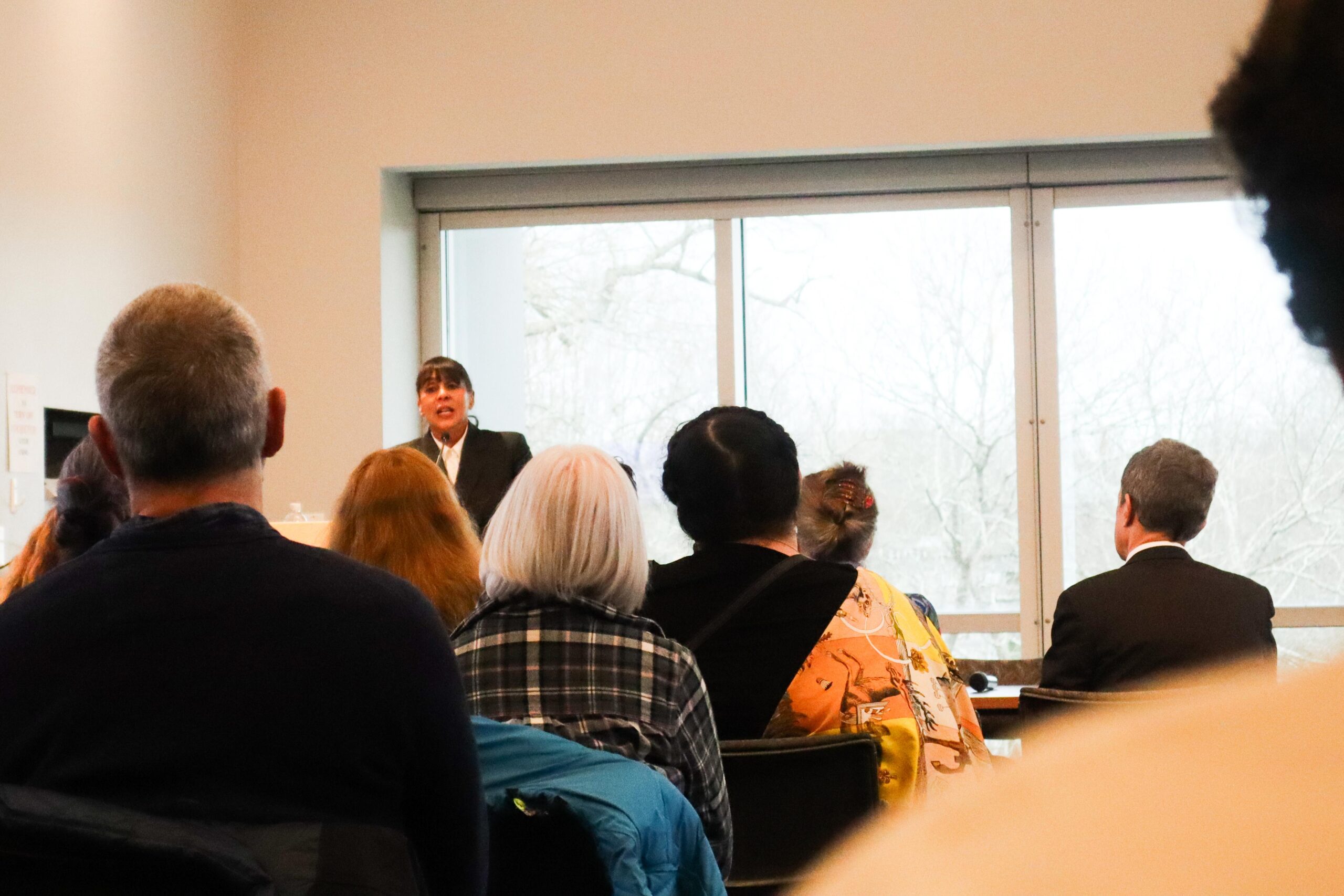Pulitzer Prize in Poetry winner and two-term Poet Laureate of the United States Natasha Trethewey’s work focuses around unearthing the racial injustices of the U.S. Civil War, written through the lens of her own experiences as well as historical events.
Trethewey has written five poetry collections, including her latest collection which was released Tuesday, titled “The House of Being.” She is also on the board of trustees at Northwestern University.
Trethewey visited the University of Rhode Island’s Robert L. Carothers Library & Learning Commons to give a poetry reading in honor of national poetry month on Thursday, April 4, drawing in a full room of students, faculty and outside guests. She chose to structure the reading jumping back and forth between excerpts of her writing and her own live commentary on her life, work and passion.
Growing up in Mississippi, Trethewey saw adversaries within her own life and the lives of those around her. She talked about restrictions on her parents’ marriage and the normalization of injustice with her poem “Quotidian,” which follows love letters that her mother wrote to her father.
“Two years / before Loving will make their love / legal, my mother writes about marrying / despite an unjust law,” Trethewey read.
Trethewey also read a longer excerpt from her poem “Ground Truth” or “Notes for a poem on the Tulsa Race Massacre.” This poem was written in honor of the 100th anniversary of the Tulsa Race Massacre of 1921, and beforehand Trethewey told the audience this reading would be eight minutes in length.
She acknowledged that some audience members had been leaving the talk, and invited anyone to leave before and not during the next poem. She gave a warning to the audience.
“It’s gonna wash over you, I hope, like a flood,” Trethewey said. “You may not like what it says.”
Within her reading of “Ground Truth,” Trethewey spoke about Black Wall Street and cited multiple cases of murder both within and outside of the massacre, repeating instances and years of injustice: “idom, idom, idom.” She stated that there needs to be increased recognition of these instances within the American school system as they are still going on.
“That was 1954, the same year as the Brown decision ending segregation, advancing civil rights,” Trethewey read. “The kind of change in America that has always led to rage.”
Trethewey also read from a poem entitled “Enlightenment,” which focused on her experience returning to Monticello, the home of Thomas Jefferson, with her father. This poem delves into Jefferson’s affair with Sally Hemmings, a slave, and the impacts of racial hierarchy amongst the Age of Enlightenment.
“I’ve made a joke of it, this history / that links us – white father, black daughter – / even as it renders us other to each other,” Trethewey read.
The final poem Trethewey read from was entitled “Imperatives for Carrying On in the Aftermath”. She wrote this poem to herself, and it spoke to the victims of domestic violence and the responses people make when hearing their stories. The final line she read from this poem evoked claps, snaps and tears from the audience.
“Ask yourself what’s in your heart, that / reliquary – blood locket and seedbed – and / contend with what it means the folk saying / you learned from a Korean poet in Seoul: / that one does not bury the mother’s body / in the ground but in the chest, or – like you – / you carry her corpse on your back,” Trethewey read.
Trethewey’s newest collection of poetry, “The House of Being,” can be found on Amazon, and some of her work can be found on the Poetry Foundation’s website at poetryfoundation.org.

